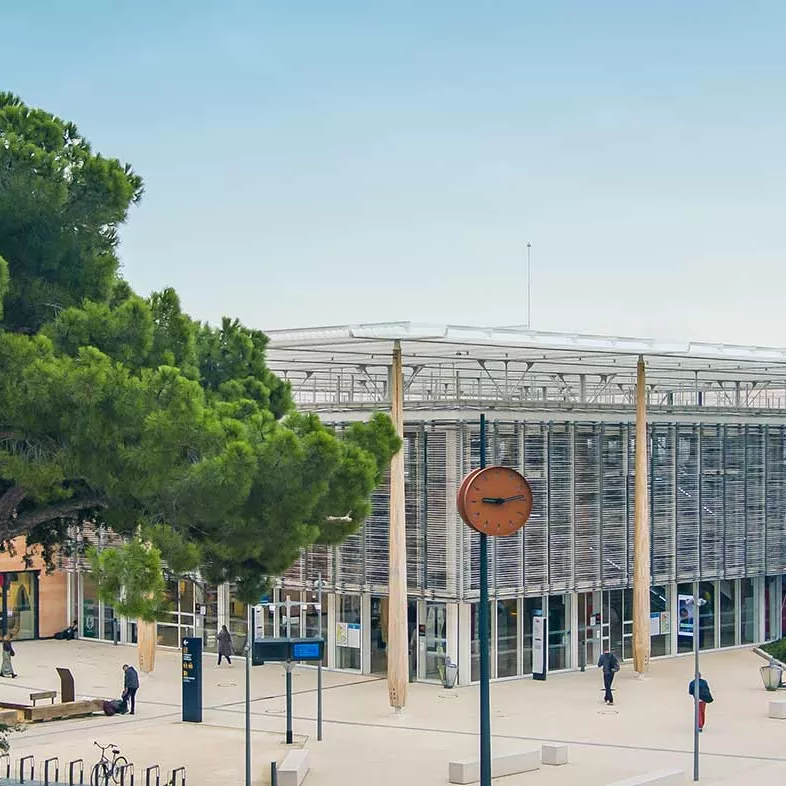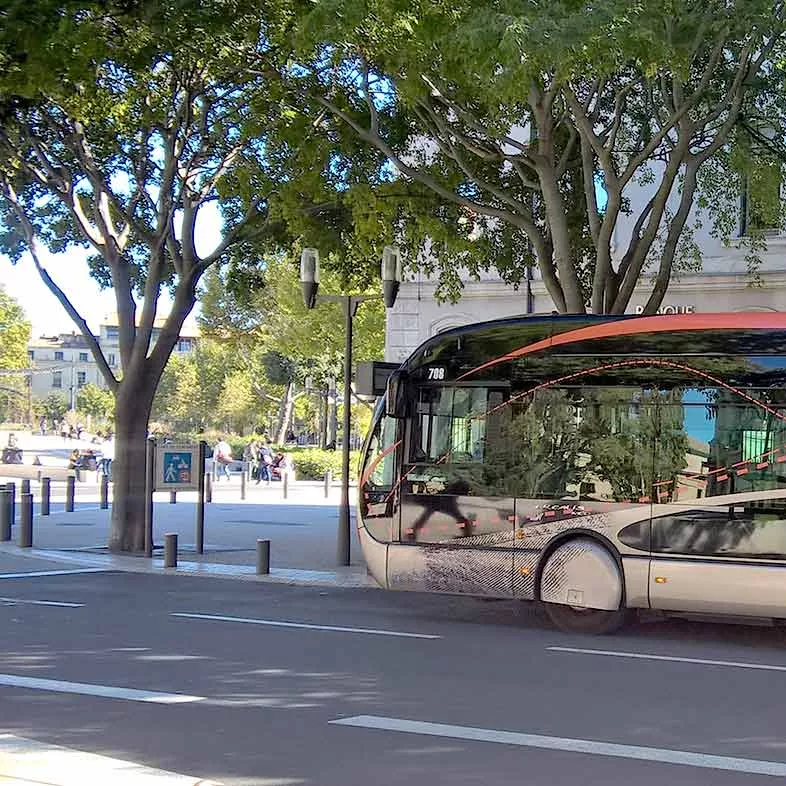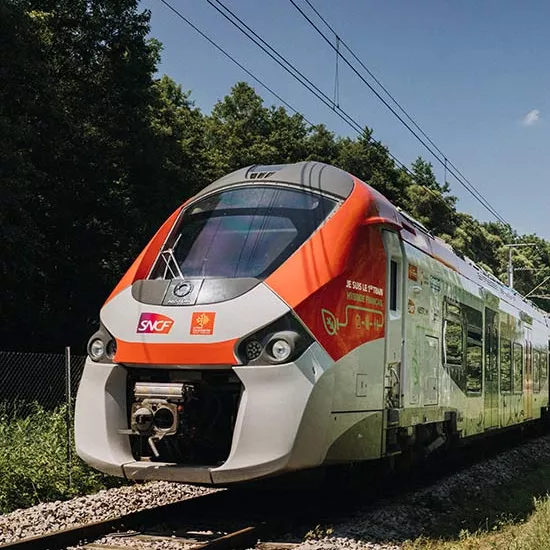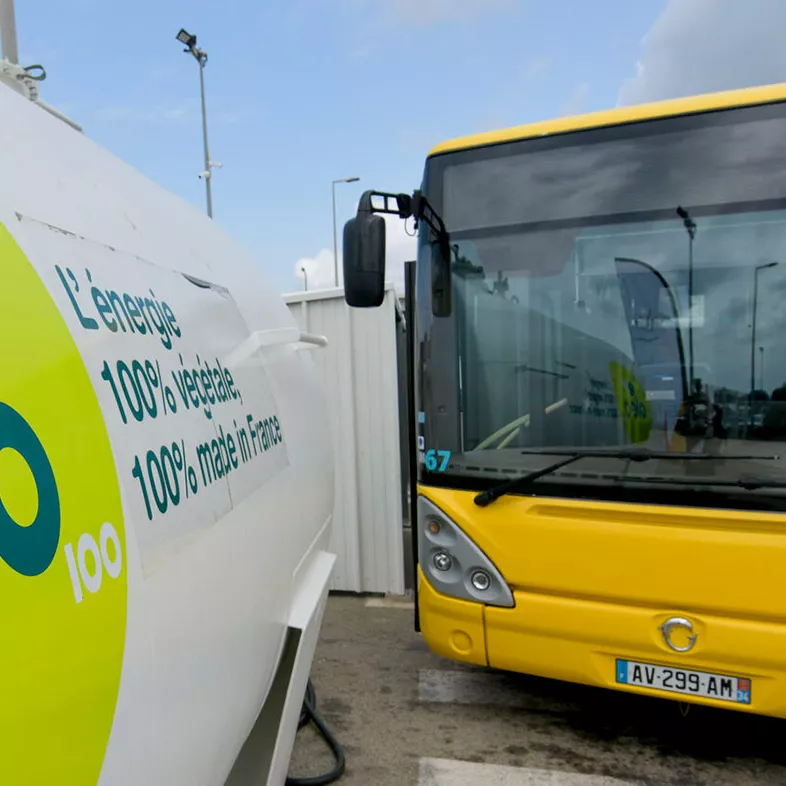Connecting regions across France: Occitanie
Find out how we support around a thousand jobs in the region and work with all our stakeholders to make lives better.
We contribute to the region’s economic growth

11,535
SNCF Group employees in 2024

€788m
in purchases from local suppliers

65%
of our suppliers—899 in all—are SMEs and very small businesses
Developing rail freight
Occitanie is a key hub for French and European rail freight, with 100,000 trucks transported by rail each year from Le Boulou near the Spanish border. The brand-new rail terminal at the port of Sète-Frontignan further strengthens the region’s leading role in driving the shift from road to rail.
The port of Sète-Frontignan—a new multimodal hub
At the port’s new rail terminal, semi-trailers and containers can now be loaded horizontally onto long freight trains. Inaugurated on 25 November 2025, the site is operated by VIIA, a subsidiary of Rail Logistics Europe. It will initially handle around 22,500 trailers and containers a year, with capacity expected to rise to 40,000. Freight is carried over long distances via the rail motorway linking Sète in southeastern France with Calais in the northwest.
Actively enhancing quality of life in the region
In Nîmes, a social grocery store under the SNCF viaduct
Since February 2025, a solidarity grocery store has set up shop in a historic railway arch near the train station in downtown Nîmes. Charity organization Table Ouverte rents this 860 sq feet unused space free of charge on boulevard Talabot thanks to the help of SNCF Immobilier and SNCF Réseau, owner of this railway viaduct. More than 300 families in difficulty come every week to do their grocery shopping thanks to the help of the local food bank. In the near future, organic food will be delivered in the neighbouring archways, which will also host an upcycled goods shop as well as a second-hand clothes shop.
How SNCF helped a social grocery store set shop in Occitanie

France’s first eco-sustainable railway station
In Nîmes, our AREP and Gares & Connexions teams designed the first eco-sustainable station in France. Opting for sustainable materials, Nîmes Pont-du-Gard station is a bold response to the climate issues facing the world today, protecting biodiversity and using renewable energy. In September 2020 the station was certified as an Occitanie Sustainable Building.

Powering efficient, effective public transportation
The Nîmes Métropole consortium of cities has picked Keolis to run its Tango urban transport network, serving 39 towns and communities, for the next 6 years. Goals for the project include:
- launch Tram’bus line T5, a rapid transit line
- extend line T4
- improve the lines’ commercial speed
- deploy on-demand transport serving the Nîmes university hospital centre, the city’s leading business areas, and TGV stations
- run 86% of fleet vehicles on alternative power sources—electricity, biogas and biofuel
- install 4,700 metres of solar canopies
A modern rail network
SNCF Réseau is working hard to make sure rail infrastructure in the region is safe and robust.
Current projects:
- Upgrading lines north of Toulouse—€900 million, joint funding.
- Modernizing track between Toulouse and Castelnaudary—€12 million, funded by SNCF Réseau.
- Modernizing catenaries on the POLT line connecting Cahors and Lamothe—€26 million, funded by SNCF Réseau.
- Modernizing catenaries on the Montpellier - Sète line—€17 million, funded by SNCF Réseau.
Powering the green transition
Replacing diesel engines with batteries
In partnership with Alstom and the Occitanie region, which has supplied a high-capacity self-propelled trainset, SNCF Voyageurs is currently testing a battery-powered TER. Commercial service for the now fully electric trainset will get a trial run starting in december 2025 on the Nîmes – Le Grau du Roi line.

Using hybrid trains
The hybrid trains developed by Alstom and CAF use power supplied by catenaries, thermal engines and batteries. We began testing them on the lines serving Toulouse in late 2023, and they have covered more than 8,000 km since.

Using biofuel
Since 2020, Keolis Languedoc coaches have been running on Oleo100 biofuel, a 100% plant-based alternative to fossil fuels that’s made from rapeseed grown in France. Today, more than 130 buses and coaches in the region—33% of the Keolis Méditerranée fleet—use alternative fuels: BioGNV, electricity, and B100 and HVO biofuels.
Bédarieux hosts Restos du Cœur charity
Since December 2021, Restos du Cœur—a charity that distributes food and hot meals—has operating out of a 228 m2 space inside the station. The non-profit’s 42 volunteers serve 3,600 meals a week. This community-building project is led by the Bédarieux city government.
Teaching the next generation about rail safety
During the 2023-24 school year, we brought our IMS outreach programmes to 9,003 students in Occitanie between the ages of 9 and 18—a 196% increase over the previous year. Along with class presentations, we organized safety field trips to Saint-Roch station in Montpellier and Narbonne station, and reached students virtually using a vintage-style mobile game called Gare à Toi.
We support high-impact regional non-profits
The SNCF Foundation is proud to support impactful cultural and civic initiatives through our collaboration with 10 regional non-profits. Together, we foster programmes for aspiring entrepreneurs, workshops that teach young people career skills, and focused efforts to build a more inclusive society with stronger social connections—all while championing the green transition.
In Occitanie, our work in uniting local NGOs has led to two collaborative projects designed to inspire young people to drive meaningful change.
Share the article